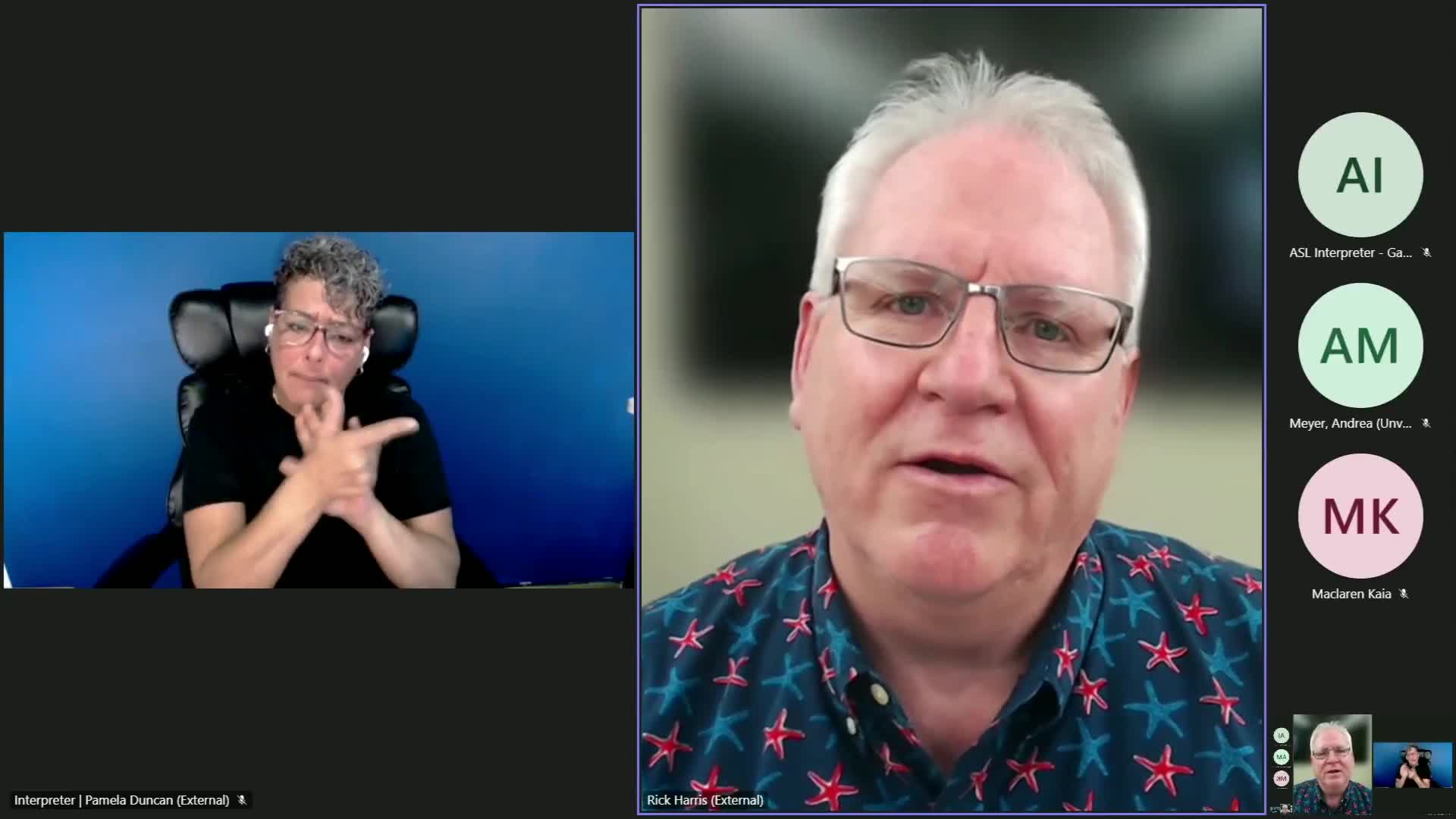Committee hears bill creating 'managing principal broker' role and tightening real‑estate oversight
Get AI-powered insights, summaries, and transcripts
Subscribe
Summary
House Bill 3137 A would add a designated managing principal broker title, clarify supervisors' duties, and change continuing education and renewal rules for Oregon real‑estate licensees, witnesses told the Senate Committee on Housing and Development during a public hearing April 21.
House Bill 3137 A would add a designated managing principal broker title, clarify supervisors' duties, and change continuing education and renewal rules for Oregon real‑estate licensees, witnesses told the Senate Committee on Housing and Development during a public hearing April 21.
The measure matters because sponsors say it updates statutes to match current business practice, clarifies who is responsible for firm‑level oversight, and adds training and testing requirements intended to protect consumers and raise professional standards.
Representative Vicki Breeze Iverson, the bill sponsor, told the committee she is a managing principal broker herself and that the measure "does several things for Realtors" including introducing a distinct managing principal broker title and clarifying supervisory duties. Iverson said the bill requires succession planning for firms, expands written supervisory agreement requirements, and updates continuing education: a total of 30 hours of training that must include a two‑hour course on recent rule and law changes and two hours on federal fair housing law.
Rick Harris, a principal broker in Ashland and a member of the Oregon Real Estate Agency work group that established principal broker licensing, said the bill "provides greater oversight, more clarity for brokers and principal brokers, expanded educational and testing requirements, and opportunities for licensees to invest in community building activities." Harris described the managing principal broker as a named point of contact between a firm and the Oregon Real Estate Agency and said the bill would let the agency take disciplinary action for noncompliance.
Key provisions discussed at the hearing include: - Creating the managing principal broker designation (a title, not a new license) and spelling out oversight responsibilities at the firm level, including consequences for failures to supervise. - Requiring written supervisory agreements and succession planning documentation in case of death or incapacity of a principal broker. - Updating continuing education to require 30 hours of training with recurring two‑hour modules on recent rule and law changes and two hours on federal fair housing every renewal cycle. - Defining "real estate teams" as subgroups operating under a firm name and setting obligations intended to prevent customer confusion. - Requiring a proficiency assessment (by rule of the Oregon Real Estate Agency) before a broker's first license renewal. - Allowing the Oregon Real Estate Agency to publish training and model compliance materials and to reassign staff to support that effort. - Narrowly allowing licensees to dedicate compensation to 501(c)(3) organizations through the closing process so the contribution need not be treated as post‑tax income in certain transactional contexts.
Committee members questioned the tax and revenue implications of allowing compensation to be routed to charities at closing. Senator Anderson asked whether routing commission through closing would remove that amount from a salesperson's taxable income; witnesses said the primary intent was to align Oregon law with the majority of other states and to allow charitable donations through a transaction in a way that charities and donors find administratively and tax‑efficient. Witnesses pointed to ORS 696.290 as the portion of statute that currently broadly prohibits sharing compensation with non‑licensees; the amendment would be located in section 17 of the engrossed bill as read in committee.
Witnesses emphasized the bill's low fiscal impact. Multiple proponents described the changes as industry‑driven updates to protect consumers and to modernize regulation rather than to expand licensing authority.
The public hearing record for HB 3137 A closed after questions from committee members; no committee action was taken during the April 21 session.
